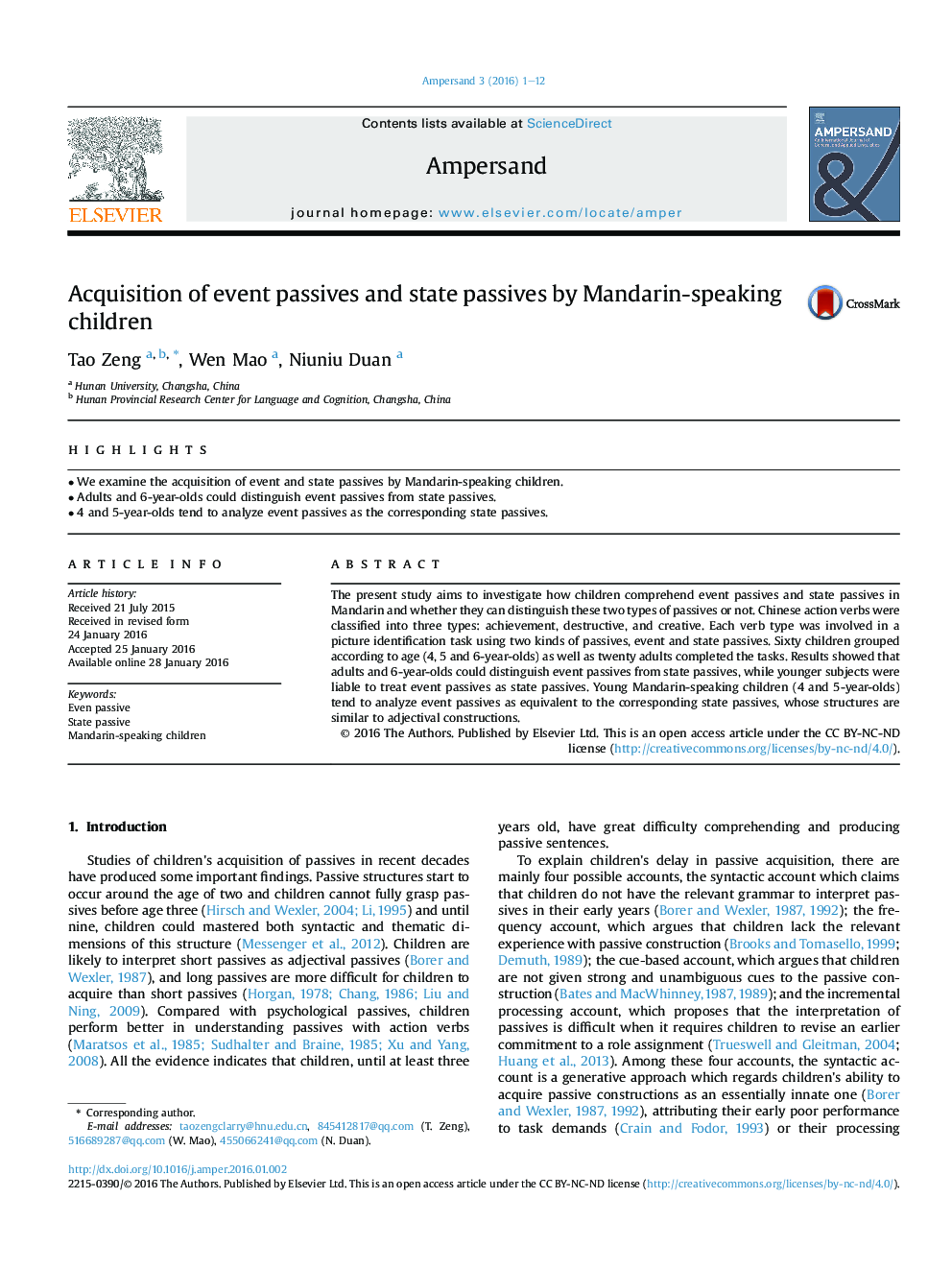| Article ID | Journal | Published Year | Pages | File Type |
|---|---|---|---|---|
| 1100453 | Ampersand | 2016 | 12 Pages |
•We examine the acquisition of event and state passives by Mandarin-speaking children.•Adults and 6-year-olds could distinguish event passives from state passives.•4 and 5-year-olds tend to analyze event passives as the corresponding state passives.
The present study aims to investigate how children comprehend event passives and state passives in Mandarin and whether they can distinguish these two types of passives or not. Chinese action verbs were classified into three types: achievement, destructive, and creative. Each verb type was involved in a picture identification task using two kinds of passives, event and state passives. Sixty children grouped according to age (4, 5 and 6-year-olds) as well as twenty adults completed the tasks. Results showed that adults and 6-year-olds could distinguish event passives from state passives, while younger subjects were liable to treat event passives as state passives. Young Mandarin-speaking children (4 and 5-year-olds) tend to analyze event passives as equivalent to the corresponding state passives, whose structures are similar to adjectival constructions.
